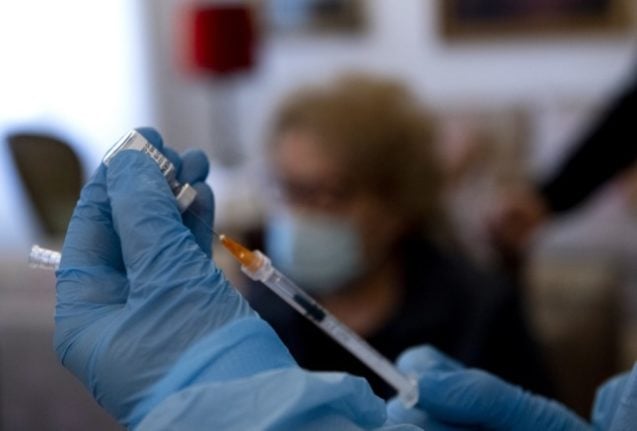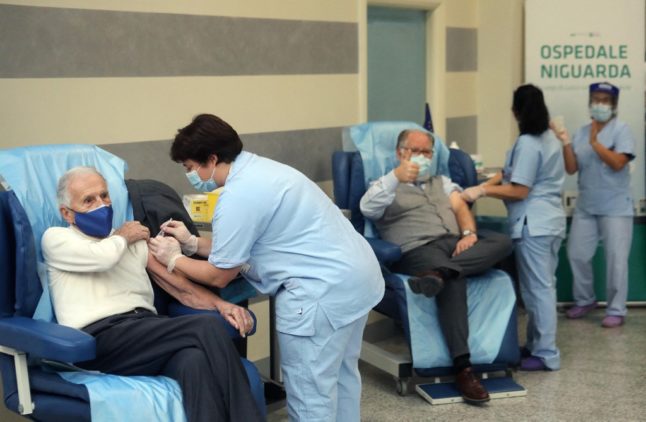“It is likely that the Delta variant will force us to remodel the green pass, releasing it after the second dose of a vaccine,” said Deputy Health Minister Pierpaolo Sileri on Italy’s Radio 24 on Monday,
For now, he stressed, it was “too early” to confirm any changes to the system as “we’ll still be waiting for the data for one or two weeks”.
Italy launched its ‘green pass’ scheme on June 17th, meaning people in the country can now use an online portal to claim a digital health certifcate if they have been vaccinated, tested negative, or recovered from Covid-19.
The health pass can be used for quarantine-free travel to other EU countries from July 1st.
In the case of vaccination, the pass is currently made available automatically in Italy 15 days after the first dose of a Covid-19 vaccine.
EXPLAINED: What is Italy’s digital ‘green pass’ used for and how do you get it?
“The decision to issue the green pass after the first dose was not a mistake,” insisted Sileri, adding that “speaking as a doctor and not as a politician, I would say there will probably be a remodeling.”
Sileri was referring to passes issued within Italy, and did not mention any changes to the rules for people using equivalent documents from other countries which are recognised in Italy under the system.
As well as EU countries, Italy also allows quarantine-free travel from the US, Canada and Japan under the ‘green pass’ system – though two vaccine doses are required in this case.
Sileri also stressed that second vaccine doses must be administered more quickly, particularly for older age groups.
At the moment, just under a third of the Italian population is fully vaccinated against Covid-19.
Health experts point out that some 2.5 million people in Italy aged over 60 – who are more vulnerable to experiencing serious illness caused by the virus – have not yet received the first dose of a vaccine.
READ ALSO: Italian health experts warn about Delta variant as vaccine progress slows
Italy’s Higher Health Institute (ISS) said in a report on Friday the Delta variant, which originated in India and has driven a rise in infections in the UK, now accounted for more than 16% of new cases in Italy.
The report warned that this variant was more contagious and had the potential to partially elude vaccines. Other studies have also found that the Delta strain increases the risk of hospitalisation,
Amid rising concern about the impact of the variant, Italian health authorities last week imposed new travel restrictions on arrivals from the UK.
The ISS report, along with others from Italian health experts and the European Centre for Disease Prevention and Control (ECDC) last weej called for more testing, sequencing and tracing in Italy, as well as renewed efforts were also needed to increase vaccination coverage.
“Based on available scientific evidence, the Delta variant is more transmissible than other circulating variants and we estimate that by the end of August it will represent 90% of all SARS-CoV-2 viruses circulating in the European Union,” stated ECDC Director Dr. Andrea Ammon in the organisation’s report.
“Unfortunately, preliminary data shows that it can also infect individuals that have received only one dose of the currently available vaccines. It is very likely that the Delta variant will circulate extensively during the summer, particularly among younger individuals that are not targeted for vaccination. This could cause a risk for the more vulnerable individuals to be infected and experience severe illness and death if they are not fully vaccinated.
“The good news is that having received two doses of any of the currently available vaccines provides high protection against this variant and its consequences. However, about 30% of individuals older than 80 years and about 40% of individuals older than 60 years have not yet received a full vaccination course in the European Union.
“There are still too many individuals at risk of severe Covid-19 infection whom we need to protect as soon as possible.
“Until most of the vulnerable individuals are protected, we need to keep the circulation of the Delta virus low by strictly adhering to public health measures, which worked for controlling the impact of other variants.”



 Please whitelist us to continue reading.
Please whitelist us to continue reading.
They’re trying to save lives, not control people.
With these new measures planned about needing a Green Pass to enter bars, restaurantes etc, like France, what is being suggested when someone cannot either have the vaccination or has had one but been told not to have the second due to health problems? This new plan is not fair to them as they won’t be admitted to the bar just to have a coffee or a meal or whatever if they don’t have a Green Pass.